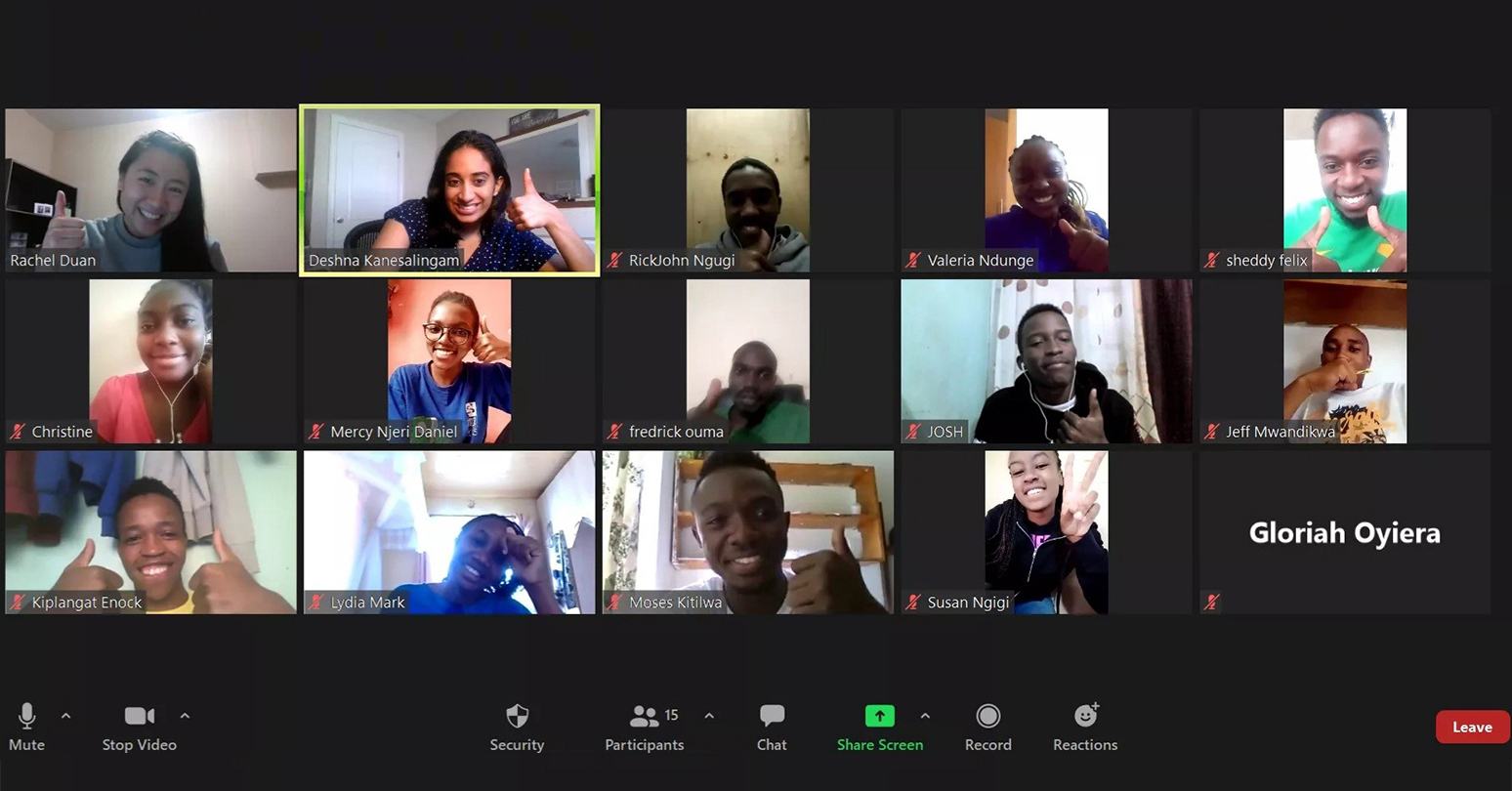Despite never meeting in person, Ivey and African students built relationships and learned from each other in ways they never imagined through the first-ever virtual Service Learning in Africa course through the Ubuntu Management Education Initiative.
Launched in 2012 and led by Associate Professor Nicole Haggerty, HBA ’89, PhD ’04, the course typically sends HBA students to African universities to demonstrate case teaching and develop new African business cases. The goal is to help African schools build capabilities in case-based management education, while allowing Ivey students to better understand specific African business environments and cultures, and to experience personal growth through service.
This year, due to COVID-19, Ivey students taught virtually in May and then wrote cases on African businesses. Although the students missed the in-person element, there were some unexpected positives to the new format.
Kyleigh Stubbs, an HBA ’23 candidate who taught at the University of Rwanda, wouldn’t have been able to participate in person because of a work internship, but was able to do the virtual course while working.
“‘Zoom University’ actually created more opportunities than would have been available in person,” she said.
Zoom’s transcript feature also allowed a deaf African student to participate in class, which Stubbs said would have been difficult in person since no one in her class knew sign language.
Bridging the distance
Despite challenges with technology, the Ivey and African students were able to forge strong connections.
“I was amazed at the kinds of relationships you can make virtually,” said Alexandra Cleary, an HBA ’22 candidate who taught at Addis Ababa University in Ethiopia. “I related to the African students very well. We talked about things like recruiting and starting an entrepreneurial venture."
Niels Hurst, an HBA ’23 candidate, also bonded with his students at Addis Ababa University and did extra after-class virtual chats to get to know them better. Among other things, he learned about their appreciation for Kitfo, a traditional Ethiopian dish of raw beef.
Driving business growth in Africa
The Ivey students also saw firsthand the opportunities for business in Africa since many of their African students had entrepreneurial ideas.
Cleary has continued to support some students who are starting one of the first social media marketing companies in Ethiopia.
And Stubbs is working with one of her students, Kalisa Godfrey, on growing his youth-based non-governmental organization, Youth For Rwanda.
A transformative experience
It was a win-win in terms of the learnings.
Godfrey said the program helped him to develop critical thinking and his new skills will help him and his team with the final stages of pitch competitions.
“I’d like to thank Ivey and my lecturers for giving us a great opportunity that changed our capabilities and skills and transformed our lives,” he said.
Another African student, Bemnet Getahun, from Hurst’s class at Addis Ababa University, said learning through cases added to her business education.
"For the first time since I started college, I felt like a business student, so the honour is all mine,” she said.
The Ivey students shared how they grew personally.
Cleary was motivated by the African students’ enthusiasm.
“They were so excited and prepared for the classes. They put their all into it. I will take that with me to my next classes. I will remember that it’s a privilege to get an education,” she said.
Stubbs said she became a better communicator, built her network, and gained a new perspective of Africa. After being introduced to case teaching, she might even consider teaching one day.
“Regardless of what I end up doing, I’ve developed as a person. It has pushed me out of my comfort zone,” she said. “I initially thought academic knowledge would be the biggest takeaway, but that was ultimately the most miniscule thing in the entire experience. It’s perspective-changing and the most important takeaways will never be on my resumé.”
Deshna Kanesalingam, an HBA ’22 candidate who taught at Jomo Kenyatta University of Agriculture and Technology in Kenya, said the experience solidified her love for teaching and she may switch from pursuing a consulting path and become an educator instead. Kanesalingam and her teaching partner, Rachel Duan, HBA ’21, created a podcast called 2 Pals Teach, where they discuss how the experience built their confidence, the challenges and opportunities with virtual teaching, and their reflections on the journey.
Related to this story
“It really felt like there wasn’t a screen between us and the students … That was something so important because it’s all about perspective,” said Kanesalingam in one podcast episode. “If you truly believe a connection can be maintained with students amongst all the struggles that you have, then the experiences that you can create are just incredible.”
Making an impact
Hurst, who has previously been on mission trips to Guatemala and Nicaragua, said he appreciated the opportunity to give back.
“I’m really focused on the education piece because I think it’s one of the most important things,” he said. “They [African students] want to learn with business cases, but don’t have the resources to do so. We are filling the gap for now, but the hope is that those we’ve taught will eventually be able to teach others.”
He said the virtual format provided a flexibility that he hopes might allow the program to make even more of an impact in the future.
“Now that we’ve seen it’s possible to do it virtually, we can potentially do it at a different time of the year and maybe more than once a year. It could be prolonged to get more benefit from it. That’s a huge positive,” he said.
The Ubuntu Management Education Initiative program continues to benefit from generous support from a number of external partners who support this program. There are opportunities to donate to support international travel scholarships for African students to come to Ivey on exchange, bursaries for African faculty development, or Ivey students’ field trip travel expenses.



